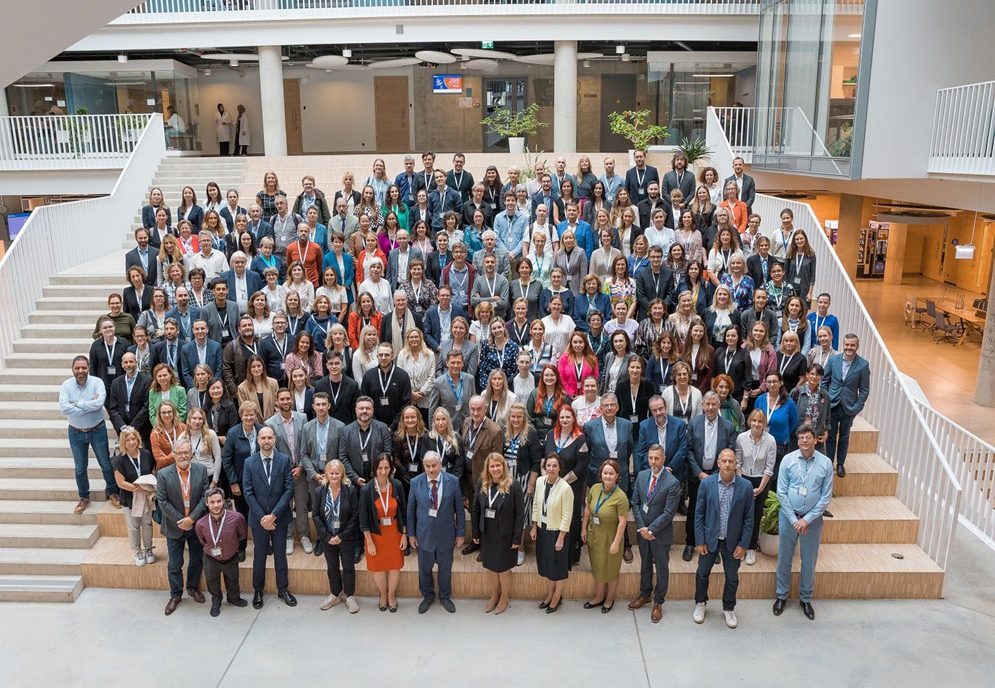EUCanScreen
Implementation of cancer screening programmes
Implementation of cancer screening programmes

Ensuring full implementation of evidence-based, cost-effective and quality-assured screening programmes for breast, cervical and colorectal cancers, preparing for implementation of evidence based, cost-effective and quality-assured screening programmes for lung, prostate and gastric cancers, ensuring proper program governance and sustainability, ensuring better-quality, timelier and comparable data collection and monitoring of screening programmes, ensuring equal access of eligible EU citizens to screening programmes and reducing cancer inequalities, ensuring capacity building in cancer screening. Ensuring collaboration and coherence with related projects funded under EU Programmes.
The work will be conducted in 11 work packages (WP).
WP 1 – Project coordination: ensure successful EUCanScreen implementation, including the necessary reporting requirements. To manage and coordinate project’s activities to achieve planned milestones as efficient as possible. To secure timely delivery of high-quality outputs/completion of deliverables. To facilitate smooth and continuous communication among the consortium partners and stakeholders. To ensure timely reporting in line with Financing Agreement.
WP 2 – Dissemination: To inform the target audience and stakeholders about EUCanScreen findings and encourage their support and adoption of project recommendations. To define and establish the consortium’s dissemination and communication strategy. To maximize dissemination efforts and results among all partners with an organized plan. To define and reach the target audience and stakeholders at the levels of institutions, professional societies, policy makers and the public. To provide the means for dissemination and communication of the EUCanScreen actions and outputs. To raise awareness of the target audience, stakeholders, and community in general about the EUCanScreen activities.
WP 3 – Evaluation of the project: To ensure accountability of the EUCanScreen activities by assessing if they were carried out as planned, if the intended products (outputs) were of desired quality, and if intended or planned impacts were made in relation to cancer screening. To optimise EUCanScreen implementation by identifying strengths, weaknesses, opportunities, and threats (SWOT), providing systematic support to the EUCanScreen participants, as well as documenting and sharing their learning experiences to answer the overarching question on lessons learned.
WP 4 – Sustainability: To ensure sustainable implementation of project results in participating countries and to improve sustainable implementation of organised, population-based cancer screening programmes in countries of the European region where such programmes are not yet implemented or are implemented in a way that is not yielding the expected impact.
WP 5 – Monitoring: To improve existing and develop new standards for data sharing and standardisation across countries, to improve monitoring and comparison of screening programs, and to enable cross-border research using screening data.
WP 6 – Addressing barriers and facilitators in cancer screening: To coordinate and support activities reducing inequalities in access to and quality of breast, cervical and colorectal cancer screening programs and care services in Europe.
WP 7- Implementation research to improve the existing screening programmes: To provide tools and recommendations and reach consensus on essential processes to close the gap between current knowledge and practice in population-based cancer screening programmes (breast, colorectal, and cervical cancers), already provided as part of the standard services in most EU countries.
WP 8-Facilitation of the new screening approach implementation: To provide a comprehensive overview of the current state of art on lung, gastric and prostate cancer screening (ie, recently recommended screening) and inform their integration into current practice with screening for breast, cervical and colorectal cancers.
WP 9- Risk-based approaches: To enhance understanding of the concepts of risk and risk-based screening and provide MS with recommendations for assessing the potential integration of these approaches into their screening programs.
WP 10- Modelling and health technology assessment to optimise cancer screening programs across Europe: To optimize and prioritize existing and new screening programmes.
WP 11- Capacity-building: To empower current and future leaders of cancer screening in exemplary countries to successfully implement or improve organised population-based screening in their respective countries.
Improvement of already running and better quality and faster introduction of newly planned cancer screening programmes across Europe.
Comparable performance indicators between countries and cancer screening programmes, renewed communication strategies and possibilities of risk based screening, which will also result in widespread knowledge of best practices, new international studies and learning from experiences.
Project Duration: 1st of June 2024 – 31th of May 2028.
Supporting Organisation: University of Latvia – LATVIJAS UNIVERSITATE (LU)
Project partners: The project involves a consortium with 29 partnering countries, consisting of 25 EU member states, Norway, Iceland, Ukraine, and Moldova, 61 affiliated partners, and 10 associated partners.
Funding: The project is co-funded by the European Union through the EU4Health programme under the Grant Agreement No. 101162959.
Disclaimer:
Funded by the European Union. Views and opinions expressed are those of the authors only and do not necessarily reflect those of the European Union or the European Health and Digital Executive Agency (HaDEA). Neither the European Union nor the granting authority can be held responsible for them.
